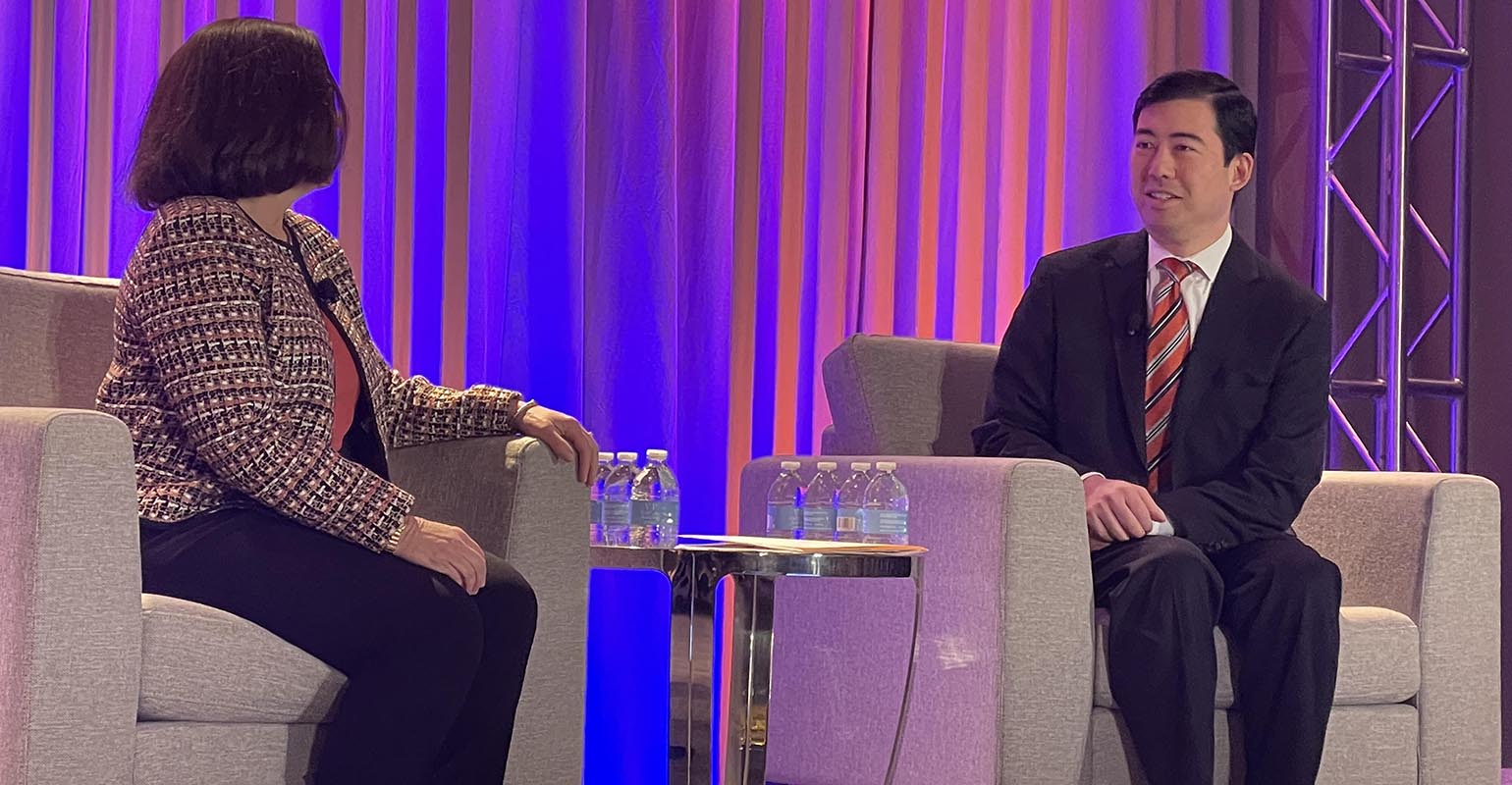
[ad_1]
Smaller firms may be put in an untenable position if the compliance dates for the increasing number of rules from the Securities and Exchange Commission land around the same time, according to speakers at the Investment Adviser Association’s Compliance Conference.
In a chat with SEC Commissioner Mark Uyeda during the event in Washington, D.C., IAA President and CEO Karen Barr said she worried even if those dates are staggered for smaller and larger firms, it could nevertheless place a massive strain on advisors.
“Even at large firms, the people implementing some of these rules are the same people implementing all of them, in compliance, legal, operations and business lines,” she said.
“Regulation does not exist in a vacuum.”
Barr brought up the proposed amendments to the commission’s custody rule (which was recently voted on 4-1 in favor, including Uyeda), as well as proposed rules released last October about investment advisors’ requirements when outsourcing services, as particular concerns.
Uyeda agreed that if these rules are going to be finalized, they couldn’t all “hit at the same time.”
Already, the commission has compliance dates for other final rules scheduled for Memorial Day and August 2024, which would demand “significant resources” from firms in order to comply.
“Are we going to add custody, cyber, outsourcing? When are those going to hit?” he asked. “Even if it’s the fall of 2024, that is really difficult to do.”
Uyeda also worried the commission could inadvertently make precedents in which regulators set compliance dates “almost with a wink,” leaving registrants with the belief that preparations could last beyond the date.
“That’s a bad situation for both the regulator and the regulated entity to me,” he said. “We need to make our rules clear.”
In particular, Barr and the IAA considered the proposal on outsourcing to be an “overreach.” Advisors will often work with third-party vendors or providers for services, including portfolio management, trading or software. The rule, if finalized, would require advisors “to satisfy specific due diligence” requirements before partnering with a service provider, and to periodically monitor their performance.
To Barr, the rule expected advisors lacking leverage with their service providers to nevertheless satisfy the requirements, while Uyeda (who voted against the proposal) worried the regulation could be viewed in an unwieldy and overly broad sense.
“Some of your clients may still like to receive US Mail. Does that make the Postal Service something you need to do due diligence on?” he asked. “I don’t know; I couldn’t get an answer during the proposal process on that. But you need to satisfy your delivery obligations.”
In a later panel, William Birdthistle, the director of the SEC’s Investment Management Division, said the relationships between third parties and advisors warranted scrutiny because while firms have increasingly depended on third parties over time, those services they provide remain no less important to giving advice.
“One thing I’m really concerned about is, if there’s an agreement between an advisor and a third-party to handle a function that is necessary and vital to the provision of investment advice, I don’t want either or both parties pointing at the other and saying ‘it’s not my problem,’” he said.
Uyeda also wondered how firms would be able to find leverage in negotiations; in a situation where they’re trying to access cloud computing services, he wondered whether a 10-person firm would be able to negotiate terms when dealing with behemoth providers like Amazon Web Services or Microsoft.
“Even large firms can’t do that,” Barr reiterated. “I think that’s one of the most unfeasible things about the proposal. It just can’t be operationalized.”
But when discussing the SEC’s reasoning behind the custody rule, Birdthistle said the commission needed to address what they saw as gaps in the rules to prevent problems later down the line.
“When they do go awry, it seems to me the first question, four months ago and Friday, is ‘where are the regulators?’” he said. “And the answer is, ‘here we are, writing, ahead of the problem.’”
[ad_2]







